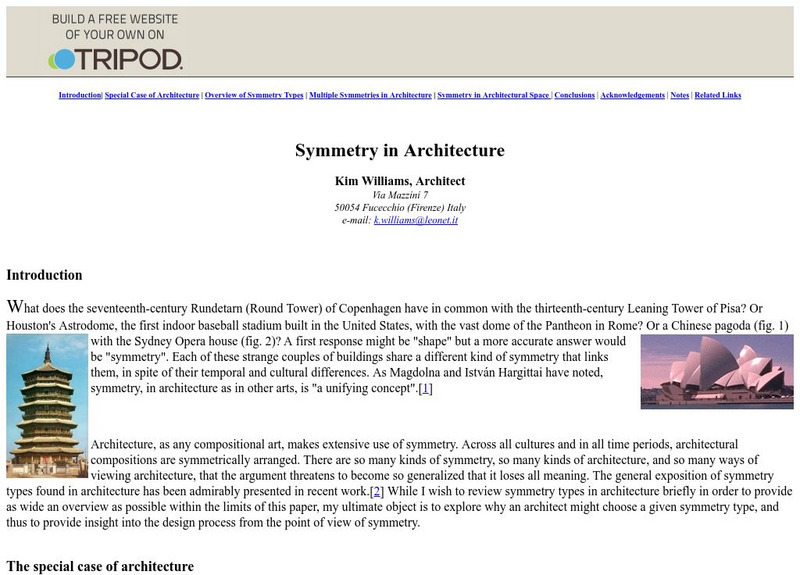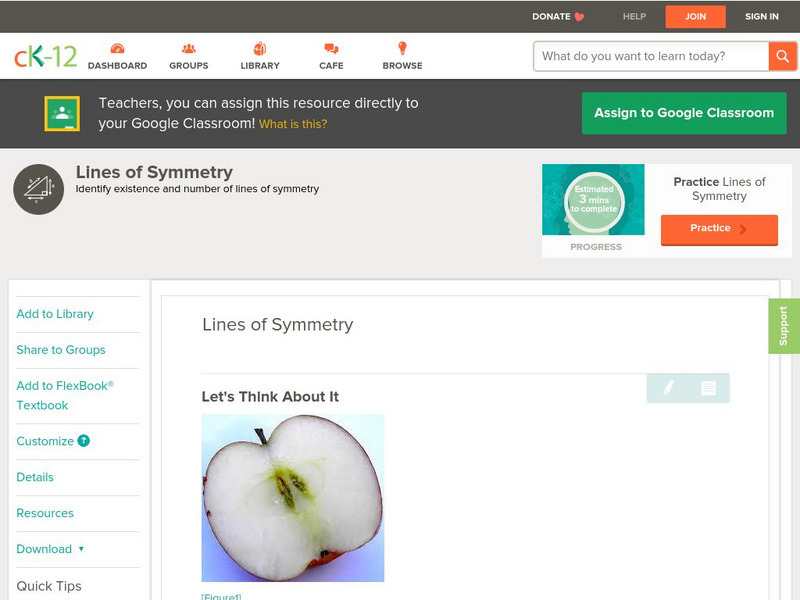Hi, what do you want to do?
Columbus City Schools
Get Your Organisms Organized
From large to small, show your class how to organize them all! Included within the guide is everything you need to take their knowledge of classification from the cellular to the species level. The worksheets focus on...
Biology Junction
Introduction to Animals
Out of all animals, elephants alone lack the ability to jump. Scholars learn all about animals using a presentation full of fun examples. It describes different types of animals, the biological similarities and differences between...
Curated OER
Invertebrate Diversity
Comparative anatomy prevails in the lesson exploring diversity among invertebrates. Biologists examine physical characteristics of an earthworm from phylum annelida and a meal worm from phylum insecta. They also inspect a cricket and a...
Curated OER
What's the Difference?
Pupils analyze the similarities in different species. This activity is part of a multi-segmented unit on the diversity of life. In this segment, students classify shoes to mimic the scientific categories of the classification system.
Curated OER
Symmetry
Young scholars explore symmetry. In this geometry lesson plan, student identify and define bilateral symmetry, radial symmetry, pentagonal symmetry, hexagonal symmetry, and cubic symmetry. Students construct examples of these types of...
Curated OER
Line or Bilateral Symmetry
In this problem solving worksheet, 4th graders figure out how many lines of symmetry 6 Greek alphabet letters have. Students write each number and draw the line or lines on the lines provided.
Curated OER
Reflections of Symmetry
Students use video and the Internet to identify examples of bilateral and radial symmetry in the world around them. They create symmetrical reflection designs using pattern blocks and paper.
Curated OER
A Side View
In this animal symmetry activity, students label organisms by the type of body symmetry that organism has. Then students draw an example of each type of symmetry. This activity has 3 drawings and 21 fill in the blank questions.
Curated OER
Mollusks
In this mollusks worksheet, students will review the characteristics of the three major classes of mollusks: gastropods, bivalves, and cephalopods. This worksheet has 17 matching, 6 short answer, 9 fill in the blank, and 4 true or false...
Curated OER
Flatworms
For this flatworms worksheet, students will review the characteristics of planarians, tapeworms, and flukes. This worksheet has 5 true or false, 2 short answer, and 7 matching questions.
Curated OER
What is an animal?
In this animal worksheet, students determine which characteristic of an animal matches the given statement. Students describe illustrations of animals using the terms radial symmetry, bilateral symmetry, and no symmetry.
Curated OER
The Phylogenetic Tree
In this biology worksheet, students label parts of a phylogenetic tree and differentiate between bilateral symmetry and radial symmetry.
Curated OER
Goals of the Diversity of Life Unit
Young scholars are introduced to the unit on the importance of diversity of life and the role that interdependence plays in our worlds. this is part of a multi-lesson unit on the diversity of life.
Curated OER
What is Diversity of Life?
Learners are introduced to the variety of organisms in our world. this lesson plan is a part of a multi-segmented unit on specie diversity. this segment explores distribution of life on land and sea.
Curated OER
Kingdom Animalia
Students are introduced to the basic characteristics of the animal kingdom. this lesson is part of a multi-segmented unit on the diversity of life. In this segment, students explore the the members of a few phyla of the animal kingdom.
Curated OER
Tackling Taxonomy
Students study physical characteristics of separate phyla and place them into similar groups. This instructional activity is part of a multi-segmented unit on the diversity of life. students develop a classification system by grouping...
Curated OER
Creative Classification
Learners create an animal by using physical characteristics to classify that animal in the Linnaean Classification System. This lesson is part of a multi-segmented unit on the diversity of life.
Curated OER
Missing Links
Pupils change one animal group into another animal group by changing only a few body characteristics. This lesson is part of a multi-segmented unit on the diversity of life. In this session, students the basis of classification.
Curated OER
Diversity Debate
Students investigate the importance of dependency and diversity in a rain forest ecosystem. This lesson is part of a multi-segmented unit on the diversity of life.
Other
Symmetry in Architecture
Provides real world examples of symmetry in architecture, including pictures of each kind of symmetry, examples, acknowledgements, and a bibliography.
CK-12 Foundation
Ck 12: Geometry: Lines of Symmetry
[Free Registration/Login may be required to access all resource tools.] Identify line, bilateral, and rotational symmetry.
BiologyWise
Biology Wise: Characteristics of Platyhelminthes
Describes the characteristics and anatomy of organisms in the phylum Platyhelminthes.
Wikimedia
Wikipedia: Squid
This encyclopedia article from Wikipedia provides a general overview of squid. Content includes a focus on their physical characteristics, diet, and habitat.
Other
Guam: Phylum Platyhelminthes, or Flatworms
High school level description of the phylum Platyhelminthes, or flatworms, including characteristics, reproduction, and class.




























